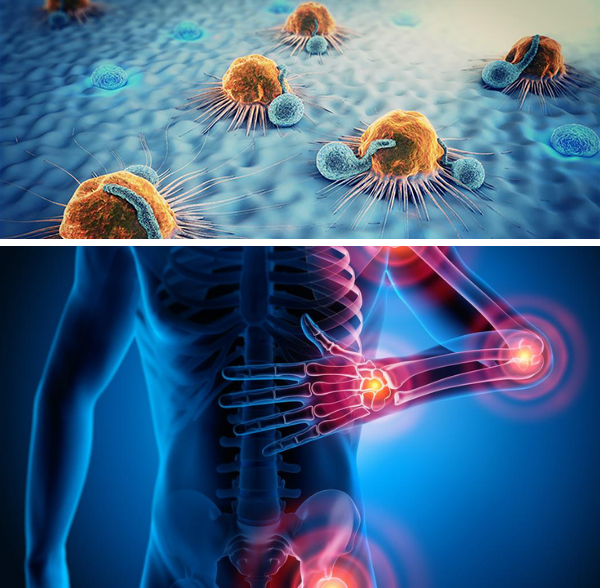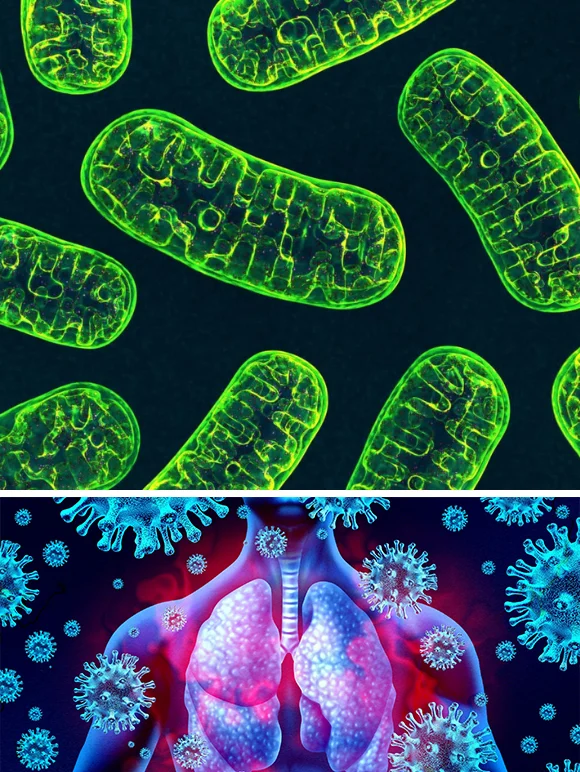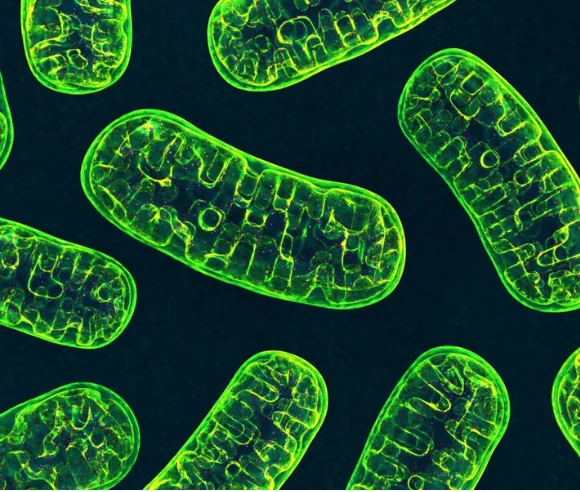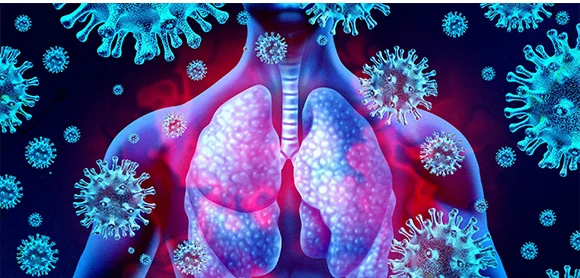Cancer
February 8, 2021 2024-04-24 17:14Cancer
Hydrogen & its Role in Cancer
Basic Principles of Hydrogen Cancer Control
Molecular Hydrogen Controls Cancer by removing ROS
An article was published in the prestigious Nature Medicine Magazine, demonstrating that “Hydrogen acts as a therapeutic antioxidant by selectively reducing cytotoxic oxygen radicals” Read More This suggests Molecular Hydrogen works as a tool to fight cancer by increasing the antioxidant level, disrupting the Anti/Pro Oxidant balance.Molecular Hydrogen controls Cancer by containing inflammation
In a cancer microenvironment, there are at least 4 factors that facilitate the cancer cell growth namely inflammation, hypoxia, macrophages and immune cells. Inflammation is one of the most important cancer promoting factor in the tumour microenvironment. It is known that Molecular Hydrogen (H2) reduces the expression of many pro-infalmmatory factors including, Tumor Necrosis Factor Alpha (TNF – α), IL – 6, IL – 10, CCL – 2, NF-KB and prostaglandin E2(PGE 2). Anti-inflammatory and antitumor action of hydrogen via reactive oxygen species Read More
Molecular Hydrogen Controls Cancer by removing ROS
An article was published in the prestigious Nature Medicine Magazine, demonstrating that “Hydrogen acts as a therapeutic antioxidant by selectively reducing cytotoxic oxygen radicals” Read More This suggests Molecular Hydrogen works as a tool to fight cancer by increasing the antioxidant level, disrupting the Anti/Pro Oxidant balance.
Molecular Hydrogen controls Cancer by containing inflammation
In a cancer microenvironment, there are at least 4 factors that facilitate the cancer cell growth namely inflammation, hypoxia, macrophages and immune cells. Inflammation is one of the most important cancer promoting factor in the tumour microenvironment. It is known that Molecular Hydrogen (H2) reduces the expression of many pro-infalmmatory factors including, Tumor Necrosis Factor Alpha (TNF – α), IL – 6, IL – 10, CCL – 2, NF-KB and prostaglandin E2(PGE 2). Anti-inflammatory and antitumor action of hydrogen via reactive oxygen species Read More

Molecular hydrogen maintains the normal function of mitochondria
Mitochondria are the centres of oxidative metabolism and the main sites where ROS is generated. Mitochondrial disorders have been proven to be involved in occurrence of many diseases including cancer. Mitochondria and Reactive Oxygen Species in Aging and Age-Related Diseases Read More Driven by concentration gradient as it is the lightest element in the periodic table, H2 rapidly penetrates cell membranes to reach into mitochondria. In 2011, Japanese researcher Ohta, reported that in addition to protecting mitochondria from ROS, such as .OH, H2 also protects mitochondrial functions by maintaining mitochondrial membrane function, increasing ATP production, reducing organelle swelling, and maintaining sound production of mitochondria bioenergy. Recent progress toward hydrogen medicine: potential of molecular hydrogen for preventive and therapeutic applications Read MoreMolecular hydrogen directly regulates immune function
CD8+ T cells(Cytotoxic T Lymphocytes) are the most important Cancer killing immune cells and plays an important role in controlling the growth and spread of cancer. As a marker of depleted T Cells, PD1 is abundantly expressed on the cancer patients Circulating CD8+ T Cells and the TIL’s which is associated with poor prognosis. Molecular Hydrogen not just inhibits the PD1 but also restores the exhausted CD8+ T Cells.Hydrogen gas restores exhausted CD8+ T cells in patients with advanced colorectal cancer to improve prognosis Read MoreMolecular hydrogen maintains the normal function of mitochondria
Mitochondria are the centres of oxidative metabolism and the main sites where ROS is generated. Mitochondrial disorders have been proven to be involved in occurrence of many diseases including cancer. Mitochondria and Reactive Oxygen Species in Aging and Age-Related Diseases Read More Driven by concentration gradient as it is the lightest element in the periodic table, H2 rapidly penetrates cell membranes to reach into mitochondria. In 2011, Japanese researcher Ohta, reported that in addition to protecting mitochondria from ROS, such as .OH, H2 also protects mitochondrial functions by maintaining mitochondrial membrane function, increasing ATP production, reducing organelle swelling, and maintaining sound production of mitochondria bioenergy. Recent progress toward hydrogen medicine: potential of molecular hydrogen for preventive and therapeutic applications Read More
Molecular hydrogen directly regulates immune function
CD8+ T cells(Cytotoxic T Lymphocytes) are the most important Cancer killing immune cells and plays an important role in controlling the growth and spread of cancer. As a marker of depleted T Cells, PD1 is abundantly expressed on the cancer patients Circulating CD8+ T Cells and the TIL’s which is associated with poor prognosis. Molecular Hydrogen not just inhibits the PD1 but also restores the exhausted CD8+ T Cells.Hydrogen gas restores exhausted CD8+ T cells in patients with advanced colorectal cancer to improve prognosis
Read More

Molecular Hydrogen reduces the side effects of Radiotherapy and Chemotherapy
The three major treatments for cancer are surgery, radiotherapy and chemotherapy. Patients receiving radiotherapy and chemotherapy often have to discontinue treatment due to treatment side effects like vomiting, diarrhoea, liver and kidney toxicity and low levels of white blood cells or platelets. In recent years, there have been reports of Molecular Hydrogen alleviating some of these side effects. Hydrogen: An Endogenous Regulator of Liver Homeostasis Read More Drinking Hydrogen-Rich Water Alleviates Chemotherapy-Induced Neuropathic Pain Through the Regulation of Gut Microbiota Read More
Hydrogen & Cancer (Some Research)
-
Immunological Effect of Hydrogen Gas-Hydrogen Gas Improves Clinical Outcomes of Cancer Patients
Read More -
Hydrogen acts as a therapeutic antioxidant by selectively reducing cytotoxic oxygen radicals
Read More -
Molecular Hydrogen as a Novel Antitumor Agent: Possible Mechanisms Underlying Gene Expression
Read More




